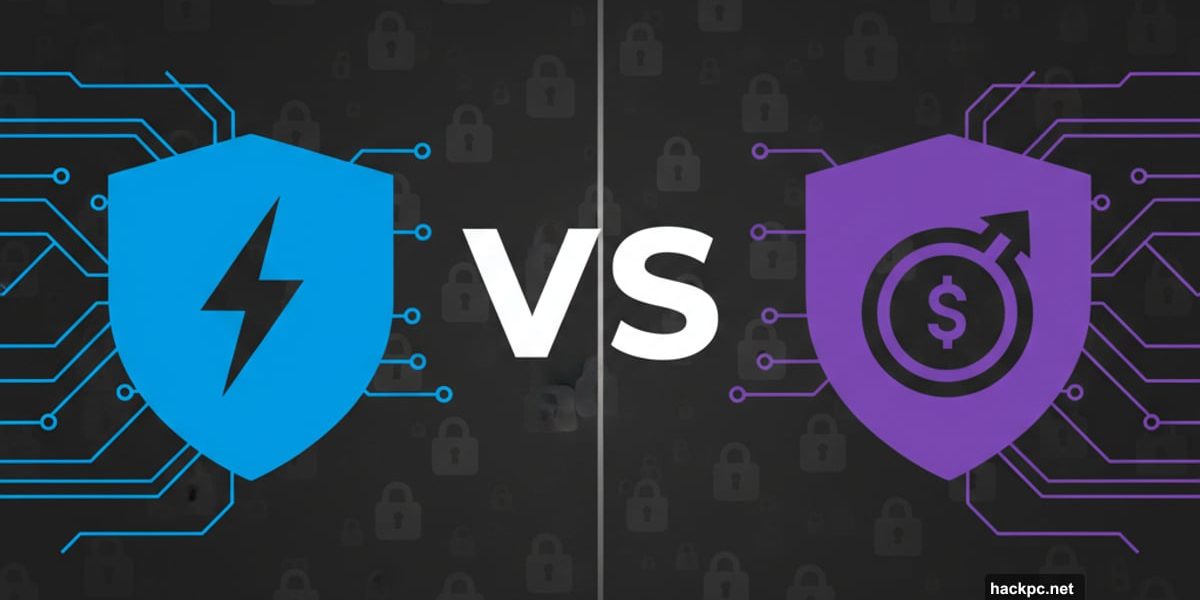
Two privacy giants walk into a VPN comparison. One’s faster. The other’s cheaper. Both claim to protect your data like Fort Knox.
So which one deserves your money? I tested both extensively to find out. Let’s cut through the marketing fluff and see what actually matters.
Speed: NordVPN Crushes It, But Proton Holds Its Own
NordVPN is the fastest VPN I’ve tested. Period.
In 2025 benchmarks, Nord caused just a 3% average download speed loss. That’s barely noticeable. Plus, you can stream 4K content, game competitively, or video conference without buffering.
Proton VPN came in at 16% average speed loss. Still solid. Most people won’t notice the difference during casual browsing or streaming. But competitive gamers and bandwidth-hungry users will feel that gap.
Here’s the kicker. Proton includes a “VPN accelerator” that supposedly boosts speeds by 400%. In my testing, it made almost no difference on stable connections. However, it might help if you’ve got spotty satellite internet or weak cell signal.
So if raw speed matters most, NordVPN wins. For everyday use, either works great.
Price: Proton VPN Wins Long-Term, No Contest
Both VPNs cost about the same upfront. But wait until renewal time.
NordVPN charges $13 monthly, $60 for the first year, or $83 total for two years. Sounds reasonable. Then renewal hits you like a freight train. Annual plans jump to $140 per year. That’s a brutal price hike.
Proton VPN costs $10 monthly, $60 for the first year, or $108 for two years. Plus, renewals are just $80 annually. That’s nearly half of Nord’s renewal price.
Over five years, you’ll save hundreds with Proton. Unless you want to constantly monitor your NordVPN subscription, cancel before renewal, and resubscribe at intro rates.
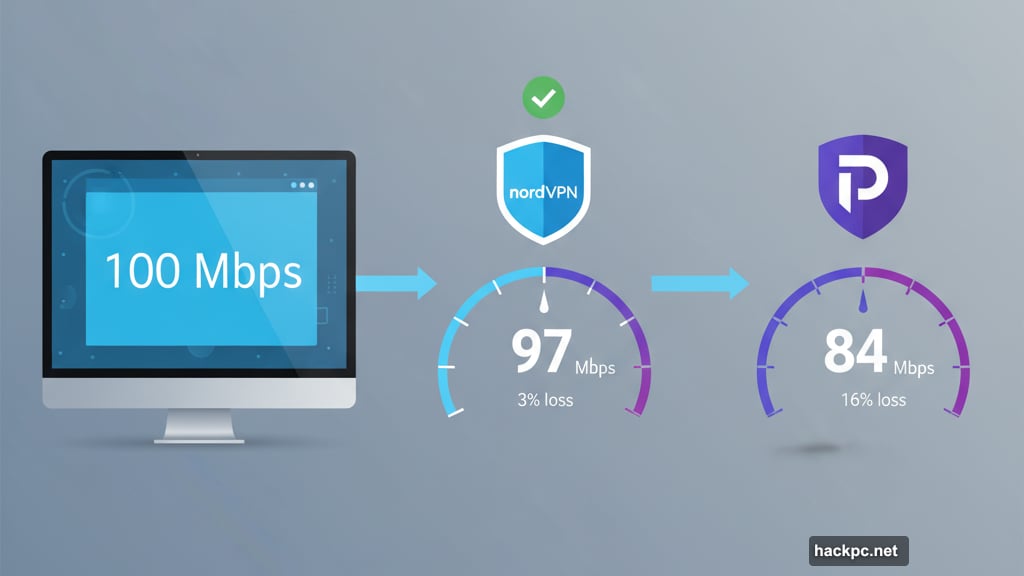
Also, Proton offers a genuinely good free tier. No data selling. No malware. No annoying ads. You’re limited to five countries and one device, but it’s the best free VPN available. NordVPN only has a three-day Android trial.
Winner: Proton VPN saves you serious cash long-term.
Privacy: Nearly Identical, With One Critical Flaw
Both VPNs take privacy seriously. Maybe too seriously.
NordVPN and Proton VPN both offer double VPN servers, which route your traffic through two servers instead of one. Both have specialty servers for Tor connections. Both claim zero logging policies backed by annual audits.
Nord operates from Panama. Proton runs from Switzerland. Both jurisdictions sit outside the Five, Nine, and 14 Eyes data-sharing alliances. So even if authorities demand data, there shouldn’t be anything meaningful to hand over.
But here’s where Proton stumbles. Its MacOS app has a nasty flaw. When you switch servers, the VPN connection temporarily breaks. Your real IP address gets exposed. And the app doesn’t clearly warn you.
NordVPN keeps you protected even while switching servers on Mac. No exposure. No worries.
For Windows, Linux, Android, and iOS users, both VPNs work flawlessly. But if you’re on a MacBook or iMac, stick with NordVPN until Proton fixes this issue.
Privacy Features: Different Strengths for Different Users
NordVPN offers post-quantum encryption. That protects against future threats from quantum computers. Most people don’t need this yet. But if you’re paranoid about long-term data security, it’s nice to have.
Nord also includes Meshnet. This lets you create virtual LANs for secure file sharing, remote access, or even LAN gaming parties. I use it to manage my home server while traveling. Works brilliantly.
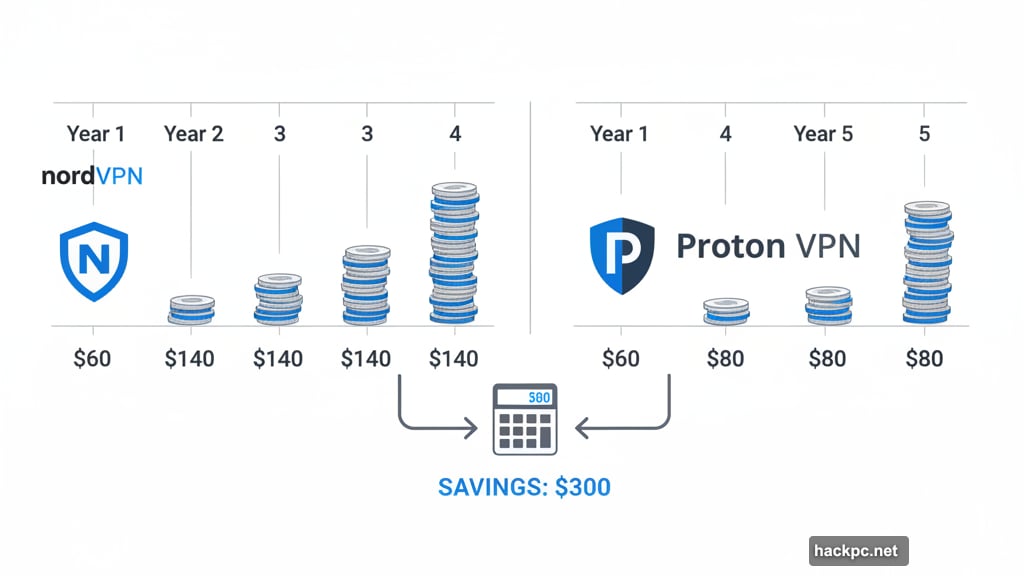
Proton VPN counters with practical privacy tools. On Android, you can disguise the VPN app as a calculator, weather app, or notepad. Useful if you’re crossing borders where VPNs are restricted.
Proton’s Secure Core servers sit in decommissioned military bases and underground bunkers. Physical security plus digital security. That’s overkill for most people. But if you’re a journalist or activist, it might save your life.
Both VPNs use RAM-only or encrypted servers. NordVPN wipes server data after each reboot. Proton uses full-disk encryption. Different approaches, similar protection.
Winner: Tie, unless you’re on Mac. Then NordVPN.
Usability: Nord Feels Slightly Smoother
Both VPNs work well across Windows, Mac, Linux, Android, iOS, and streaming devices. But NordVPN edges ahead in user-friendliness.
Nord’s interface is cleaner. Settings are easier to find. There’s less to get lost in. Beginners will appreciate the simplicity.
Proton VPN gives you more control. Advanced settings let you customize everything. But that means more potential confusion for newcomers. To Proton’s credit, they explain settings clearly within the app.
NordVPN’s split tunneling on Android only lets you exclude apps from the VPN. You can’t choose to route only specific apps through the tunnel. Proton gives you both options. Minor point, but power users will notice.
Both VPNs unblock Netflix, Disney Plus, Hulu, BBC iPlayer, and other streaming services effortlessly. No buffering. No issues.
Nord has 8,000-plus servers in 126 countries. Proton boasts 15,300-plus servers in 126 countries. Both have excellent coverage in Africa and the Middle East, where many VPNs fall short.
Bundles: Depends on What You Need
Both companies now offer cybersecurity bundles beyond just VPNs.
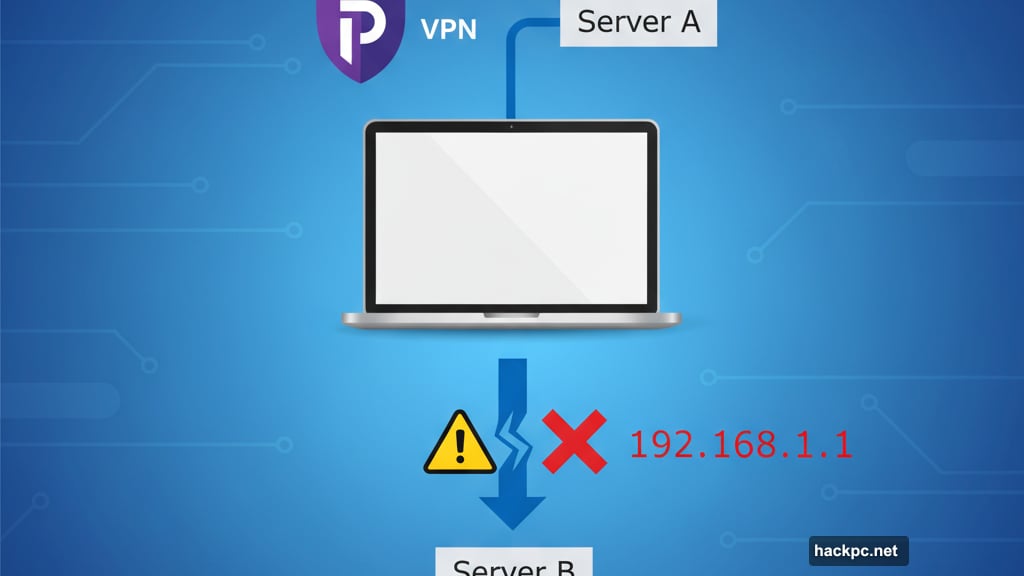
NordVPN’s packages include password management, cloud storage, anti-malware protection, and identity theft monitoring. If you want one-stop cybersecurity, Nord covers most bases.
Proton’s bundle includes password management, cloud storage, secure email, and a calendar. Perfect if you’re trying to escape Google’s ecosystem.
Neither bundle is objectively better. It depends on your needs. Want anti-malware and identity protection? Go Nord. Want encrypted email and calendar? Choose Proton.
Streaming and Gaming: Both Deliver
I streamed 4K content on both VPNs without issues. Netflix, Disney Plus, Amazon Prime Video, HBO Max. Everything worked smoothly.
For torrenting, Proton offers port forwarding. NordVPN doesn’t. But I downloaded torrents quickly on Nord without needing it. So this feature matters more in theory than practice.
Gaming felt snappier on NordVPN thanks to those faster speeds. But Proton VPN still performed well for most games. Unless you’re playing competitive esports, you won’t notice much difference.
The Verdict: Your Choice Depends on Budget and Devices
NordVPN wins if you need the absolute fastest speeds, use Apple devices heavily, or want post-quantum protection. It’s the better technical product. But that renewal price sting is real.
Proton VPN wins if you’re budget-conscious, need a free option, or use Android in restrictive countries. Plus, you won’t get hammered by renewal fees.
Both VPNs deliver excellent privacy, reliable streaming, and solid international server coverage. You can’t go wrong with either choice.
My take? If you’ve got the discipline to manage subscriptions and avoid renewal fees, NordVPN edges ahead. If you’d rather set it and forget it, Proton VPN saves you money and headaches.
Choose based on what matters most: speed and polish, or long-term value and flexibility.
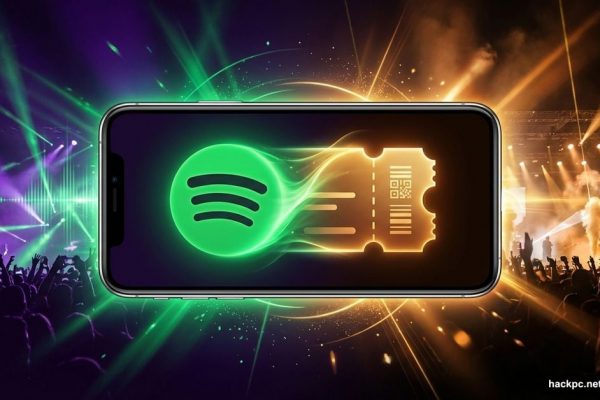
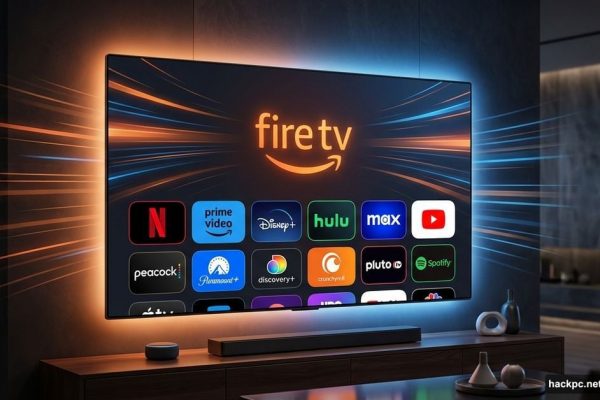

Comments (0)